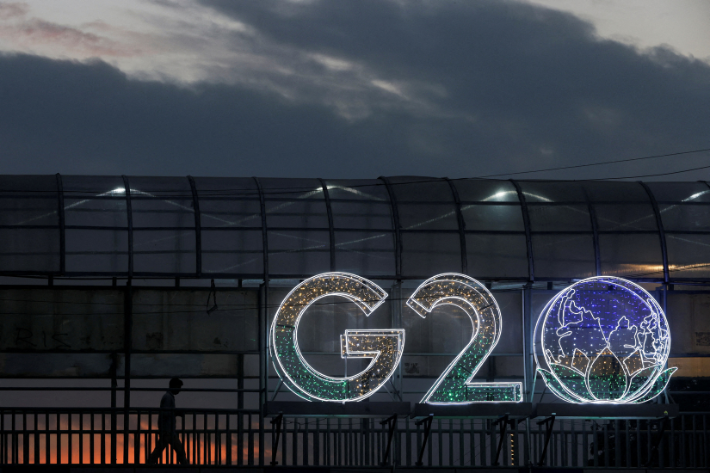India, Saudi Arabia, the United Arab Emirates, the United States and the European Union announced a sweeping rail and ports deal on Saturday on the sidelines of the G20 summit in New Delhi.
The India-Middle East-Europe Economic Corridor, or IMEC, will link South Asia and the Middle East to help the flow of energy and trade from the Gulf to Europe, US officials have said.
The deal is largely seen as a push by US President Joe Biden to counter China’s Belt and Road initiative by pitching Washington as an alternative partner and investor for developing countries at the G20 grouping, especially in the Indo-Pacific region.
Also on AF: Modi-Biden ‘Affirm’ Tech, Defence Ties Ahead of India G20 Summit
At an event announcing the pact, Biden said it was a “real big deal” that would bridge ports across two continents and lead to a “more stable, more prosperous and integrated Middle East.”
It would unlock “endless opportunities” for clean energy, clean electricity, and laying cable to connect communities, he added.
Narendra Modi of summit host India said: “Today, as we embark upon such a big connectivity initiative, we are sowing the seeds for future generations to dream bigger.”
The deal will benefit low and middle-income countries in the region, and enable a critical role for the Middle East in global commerce, Jon Finer, the US deputy national security adviser, told reporters at the G20 summit earlier.
It aims to link Middle East countries by railway and connect them to India by port, cutting shipping times, costs and fuel use in effect.
A memorandum of understanding on the IMEC was signed by the European Union, India, Saudi Arabia, the United Arab Emirates, the US and other G20 partners. Conversations on the pact had been underway for months, sources said.
‘Turning the temperature down’
IMEC is envisioned to consist of two separate corridors with an east corridor connecting India to the Arabian Gulf, and a northern corridor connecting the Arabian Gulf with Europe, according to the memorandum signed at G20.
“Linking these key regions, we think, is a huge opportunity,” said Finer.
Along the railway route, participants intend to lay cable for power and data lines, as well as pipeline for hydrogen derived from renewable energy for use in power generation.
French President Emmanuel Macron said the pact offers opportunities for manufacturing, innovation and people. “But our intention is to make it real, and to be sure that after this commitment we have concrete results,” he said at the event. No immediate details of the value of the deal were available.
Apart from countering China, the deal will also help bolster US efforts for a broader diplomatic deal in the Middle East that would have Saudi Arabia recognise Israel.
From the US viewpoint, Finer added, the deal helps “turn the temperature down across the region” and “address a conflict where we see it”.
- Reuters, with additional editing by Vishakha Saxena
This report and its headline were updated on 10 September, 2023.
Also read:
‘President of Bharat’ G20 Dinner Invite Sparks India Name Row
India Slates ‘Petulant’ China Over Xi’s G20 Summit Snub
Li Qiang to Attend G20, ASEAN Summits, Instead of Xi
Host India Doesn’t Want G20 to Discuss Fresh Russia Sanctions
























